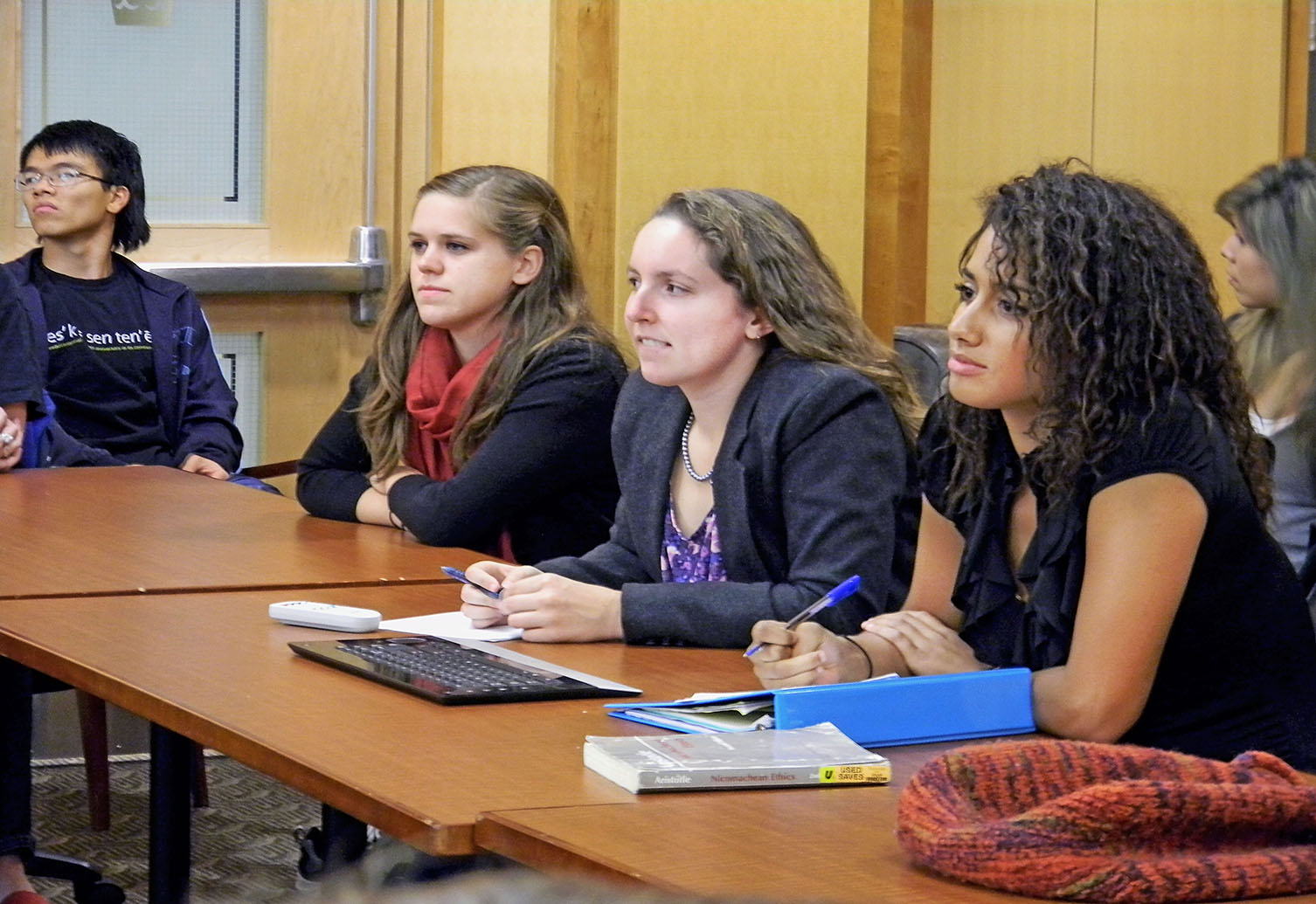Each year, Gustavus’s student-led organization, Building Bridges, organizes a conference in an effort to promote understanding of diversity and to foster social justice. The conference’s objective is to lay a foundation for opening up dialogue to the wider community, bringing together individuals from various settings, situations, and interests to discuss. The 18th Annual Building Bridges Conference for 2013 has been in the topic planning phases since this summer and is prepared for this year’s topic unveiling.
They announced the topic for this year’s conference last Wednesday night. The topic is entitled‘Sentenced for Life: Confronting the Calamity of Mass Incarceration.” Building Bridges Co-Chairs Jasmine Porter and Becca Eastwood worked over the summer to research three separate conferences. After reconvening at the start of this school year, the two students decided to make mass incarceration the theme of this year’s Building Bridges Conference.
“It’s an issue that is happening right in our own cities and back yard,” Porter said, “but it’s not being addressed.”
According to the Office for Civil Rights and their Civil Rights Data Collection, over 70 percent of students involved in school-related arrests or who get referred to law enforce are Hispanic or African American. In this report, it was revealed that African American students are over 3.5 times more likely to be suspended or expelled than their white peers.
“It creates a cycle that repeats itself,” Eastwood said. “Certain groups of people are born into and grow up in certain circumstances and these laws disproportionately affect them. They end up entangled in the justice system and it’s difficult to get out of that.”
With the conference set to be in early March, Building Bridges is putting their best foot forward to gather together speakers and workshops that will kindle thought-provoking conversation while making the community aware of issues not often discussed.
“In academia, it hasn’t trickled down to the average person yet,” Senior Tasha Ostendorf said, “but there’s a strong view among scholars that agree on sociological issues that it’s easy to say, ‘obviously poor neighborhoods are going to produce more criminals,’ but there is so much more behind that. You could equally find that much criminal activity in ‘rich, white neighborhoods.’”
Mass incarceration calls into question how the law may be intentionally set up to disadvantage certain people who are born into and grow up in certain circumstances.
“This is a topic that people in the community have had interactions with,” Director of Diversity and Office of Multicultural Programs Virgil Jones said. “Most people just never really considered this connection as a part of a larger national issue.”
Mass incarceration, an issue invisible public conversations, has also become a growing issue at a federal level.
“The conference should spark a discussion about whether or not there is bias that exists in the scales of justice, depending on what family you are born to and what color they were,” Jones said. “The workshops, I hope will provide an opportunity for students to think about how they can challenge the system or find ways to change it.”
Building Bridges meets Wednesdays at 9 p.m. in the Board Room. They are curently taking new members through the 2012 Fall Semester. A variety of involvement is available for those interested in taking part in this year’s conference.
